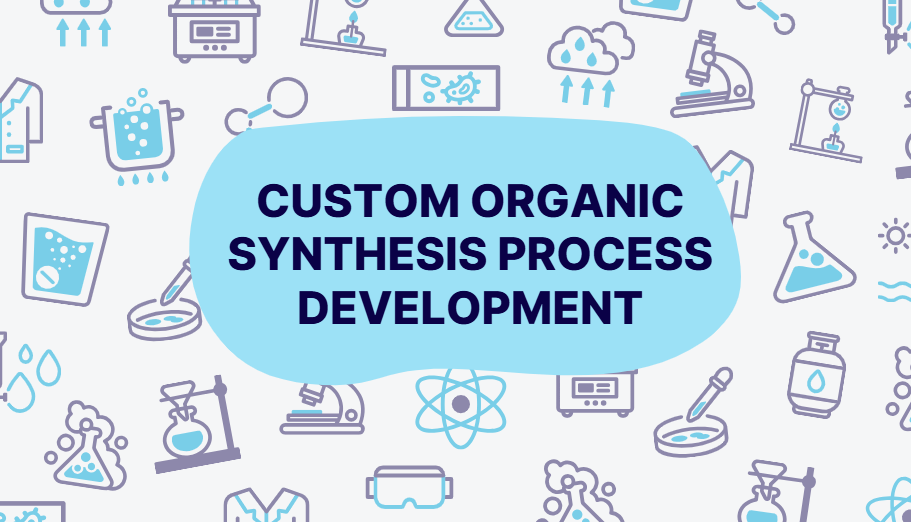The need for environmentally friendly materials has never been more critical. Sustainable monomers offer a transformative solution for custom polymer synthesis by enabling the development of eco-friendly, high-performance polymers. Derived from renewable resources or designed to minimize environmental impact, these monomers align perfectly with the principles of green chemistry and the circular economy.
This article delves into sustainable monomers, their types, advantages, and real-world applications in custom polymer synthesis, alongside insights into current challenges and future prospects.
What Are Sustainable Monomers?
Sustainable monomers are chemical building blocks used in polymer synthesis, characterized by their renewable origin, biodegradability, or low environmental footprint. They are derived from:
- Biological sources: Plants, algae, or waste biomass.
- Recycled materials: Depolymerized plastics or waste streams.
- Green synthesis processes: Low-energy, waste-reducing production techniques.
Types of Sustainable Monomers
1. Bio-Based Monomers
Derived from renewable resources, these monomers replace petrochemical counterparts without compromising performance.
| Example | Source | Applications |
| Lactic acid | Corn, sugarcane | Biodegradable plastics (PLA) |
| 1,3-Propanediol | Glycerol | Polyesters, coatings |
| Itaconic acid | Fungi fermentation | Adhesives, thermosetting resins |
2. CO₂-Based Monomers
Carbon dioxide is converted into monomers, reducing greenhouse gas emissions while creating value-added products.
| Monomer | Polymer Produced |
| Ethylene carbonate | Polycarbonates |
| Propylene carbonate | Polyurethanes |
3. Recycled Monomers
Recycled monomers are obtained through depolymerization processes, converting waste polymers back into their monomeric forms.
- Examples:
- Terephthalic acid from PET bottles.
- Caprolactam from nylon recycling.
4. Biodegradable Monomers
These monomers enable the synthesis of polymers that decompose naturally under environmental conditions.
| Monomer | Polymer Produced |
| ε-Caprolactone | Polycaprolactone (PCL) |
| Succinic acid | Polybutylene succinate |
Advantages of Using Sustainable Monomers in Custom Polymer Synthesis
- Environmental Benefits
- Reduction in carbon footprint.
- Minimal waste generation during production.
- Economic Potential
- Utilization of abundant renewable resources.
- Creation of value from waste streams.
- Enhanced Biocompatibility
- Safer for use in medical and pharmaceutical applications.
- Alignment with Regulatory Standards
- Compliance with sustainability directives such as REACH and EPA guidelines.
Applications of Sustainable Monomers
1. Packaging Industry
- Bio-based polyesters: Used in compostable food packaging.
- CO₂-derived polycarbonates: Replace petroleum-derived plastics in containers.
2. Medical Devices
- Polylactic acid (PLA): Biodegradable sutures and drug delivery systems.
- Polyhydroxyalkanoates (PHAs): Tissue engineering scaffolds.
3. Automotive Sector
- Lightweight, durable polymers synthesized from bio-based monomers improve fuel efficiency and recyclability.
4. Textiles
- Bio-polyamides derived from castor oil replace traditional nylon in fabrics.
Challenges in Adopting Sustainable Monomers
| Challenge | Potential Solutions |
| High production costs | Investment in large-scale biorefining facilities. |
| Limited availability | Development of diversified bio-feedstocks. |
| Performance trade-offs | Advanced synthesis techniques to match petro-based polymers. |
Future Prospects
- Advances in Biotechnology
- Use of synthetic biology to engineer microorganisms for monomer production.
- Example: Genetically modified yeast producing high-yield lactic acid.
- Integration with Circular Economy
- Expansion of monomer recovery systems through advanced recycling technologies.
- Policy and Regulation
- Governments incentivizing the shift to bio-based materials through subsidies and carbon credits.
- Collaborative Innovation
- Partnerships between academia, industry, and custom synthesis CROs to fast-track sustainable polymer development.
ResolveMass Laboratories: Your Partner in Sustainable Polymer Innovation
At ResolveMass Laboratories, we specialize in crafting sustainable polymers tailored to your needs. Whether it’s designing bio-based polymers or integrating recycled materials, we leverage advanced custom polymer synthesis techniques to drive sustainability and innovation.
Explore our services:
Reach us to discuss how we can support your sustainability initiatives: Contact Us.
Conclusion
The shift to sustainable monomers in custom polymer synthesis is a critical step toward achieving a greener future. By reducing reliance on fossil fuels, minimizing environmental impact, and enabling a circular economy, sustainable monomers not only meet the demands of today but also pave the way for a more sustainable tomorrow.
References
- Behr, A., & Johnen, L. “Utilization of CO₂ as a chemical feedstock: A challenge for sustainable chemistry.” ChemSusChem, 2009. DOI: 10.1002/cssc.200900186.
- Thakur, V. K., & Thakur, M. K. “Processing and characterization of natural cellulose fibers/thermoset polymer composites.” Carbohydrate Polymers, 2014. DOI: 10.1016/j.carbpol.2013.08.091.
- Sheldon, R. A. “Green and sustainable manufacture of chemicals from biomass: state of the art.” Green Chemistry, 2014. DOI: 10.1039/C3GC41935E.

